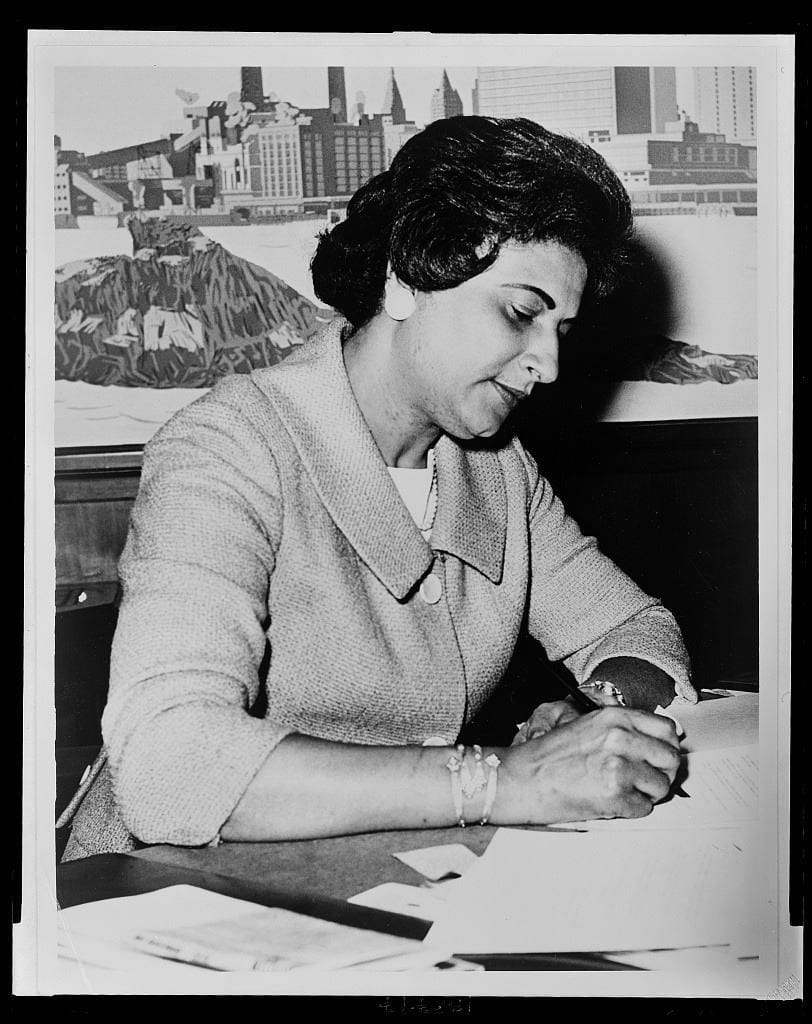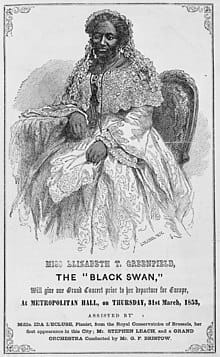- The SHE Newsletter
- Posts
- 🔥 The SHE Newsletter
🔥 The SHE Newsletter
SHE (Surviving, Healing, and Evolving) 💌 Curating Meaningful Information That Matters
💥 “Good Morning, Beautiful Soul! May the rhythm of your heart align with the beat of the universe, creating a melody of peace and joy.” A quote attributed to Langston Hughes, poet, author, writer, and activist

And after a fulfilling day, may you enjoy peace, love, and relaxing healing energy
Concentrate on You!
Words are powerful. How we talk to ourselves is important. Is your self-talk loving, soothing, and compassionate or brutal, mean, and shaming?
Write a love letter to yourself! You can do it, so do it…
✨”Once I learned to like me more than others did, then I didn’t have to worry about being the funniest or the most popular or the prettiest. I was the best me and I only ever tried to be that.” ✨ Issa Rae, content creator developer, producer, actress, boss
“Perfectionism is the voice of the oppressor.”
Happy Women’s History Month

Super Soul Sister Beautiful
In the Spotlight
It’s always a good idea to visit a Women’s History Museum
It’s never a bad time to take a course in Women’s History
It’s fascinating to follow what goes on at the Harvard Radcliffe Institute (the Radcliffe Institute for Advanced Study).
“The thing that is really hard, and really amazing, is giving up on being perfect and beginning the work of becoming yourself.”
New! Spotlight on Students
Since graduation season is upon us, we are going to spotlight some career paths for high school and college students for the next few months. (So many of us wish we had known about other more non-traditional paths! Here’s wishing that you or your young ones have big expansive dreams and pathways!) Here are some interesting careers: here, here, and here.
How to overcome overthinking in business and get s—done.
“There is theory and poetry in [Black women’s] liberatory moves and my work in this time is to elevate that and make it visible to deepen the leadership canon and offer another way.”
Here is an opinion piece about the Black women who seek to hold Trump accountable by Dr. Wendi Williams
“A year from now, you may wish you had started today.”
Again, write a love letter to yourself
🔶🔶

Judge Constance Baker Motley: A Beautiful, Brilliant, Elegant, Confidant, & Courageous Pathfinder
Education and Liberation
Guns, Violence, Intimidation Tactics, Troops, and Continuing Court Fights for Access to Education and Equal Justice with Constance Baker Motley
By Dr. Rhonda Sherrod
⚡️The late, Chicago civil rights attorney, Lew Myers, once told me that he had practiced law in Mississippi courtrooms, where angry White men sat glaring at him with guns drawn. Another brilliant friend, the late human rights attorney, Chokwe Lumumba, sometimes found himself at loggerheads with Mississippi judges before he became the mayor of Jackson in 2013. Both of these men practiced law years after their forerunner, Constance Baker Motley, blazed a trail with her brave forays into segregated Mississippi courtrooms. So, imagine what it was like for her!
In January, just in time for this year’s celebrations of Black and Women’s History Months, Constance Baker Motley, whom President Lyndon B. Johnson appointed as the first Black female federal judge in 1966, was honored with a postal stamp. (You may recall that Justice Ketanji Brown Jackson, who was elevated to the Supreme Court in 2022, referenced Baker Motley, the first Black woman to argue before the Supreme Court, as one of her heroines.)
Hailing from a Caribbean immigrant family that settled in New Haven, Connecticut, Baker Motley was a Columbia University educated lawyer. Gifted with penetrating intellect, she developed well-crafted, airtight legal arguments that were difficult to refute, set aside, or defeat. She delivered them with the kind of confidence and authority that belied the fact that women rarely practiced law in courtrooms during her day.
One of Baker Motley’s many electrifying legal feats involved facing down neo-Confederates to get a Black man, James Meredith, admitted into the University of Mississippi (“Ole Miss”) in Oxford in 1962. Jack Greenberg, one of the lawyers on her legal team, famously wrote, in his book, Crusaders in the Courts, that Baker Motley “was a dogged opponent of Southern segregationists, who found her tougher than Grant at Vicksburg. She dug into a position and wouldn’t let go in the face of all kinds of threats, evasion, obfuscation, and delay.” (General Grant’s hard fought victory in Vicksburg, Mississippi was a crucial turning point in the Civil War, as it put the Union troops in command of a strategic Mississippi River location which enabled the secure passage of goods, supplies, and communication.) Baker Motley, the first female “General” working in her mentor, Thurgood Marshall’s, NAACP Legal Defense Fund (LDF) army, had the segregationists so rattled that one local newspaper covering the case referred to her as that “ Motley woman.”
But this was not her first rodeo in Mississippi, where White racism and hate flowed with startling normalcy and ease. In 1949, Jackson had been the site of a trial that she assisted another LDF lawyer (and military veteran), Robert Carter, with when they argued the Bates v. Batte case. It was a class-action lawsuit filed by a science teacher, Gladys Bates, because she and other Black public schoolteachers were being paid less than white teachers. Right then and there, in federal court, Carter and Baker-Motley became the first Black lawyers since Reconstruction to argue in a Mississippi courtroom—and it was standing room only. Black people were there to express unbridled support, pride, and admiration, no matter how dangerous it was to do so. White spectators were there to spew venom and behave menacingly. Baker Motley later described herself as “a bit frightened,” but she did not come to play. Although they lost the case on procedural grounds, she distinguished herself as a highly capable and cogent advocate.
🔶🔶🔶
After winning the legendary Brown v. Board of Education case, the NAACP lawyers were compelled to file a series of cases across the South to enforce the Supreme Court order, because many elected state and local officials, quite simply, refused to obey the high Court’s ruling. That’s why Baker Motley was in Mississippi, again.
James Meredith , an Air Force veteran who had been a student at Jackson State College, decided he would apply to the University of Mississippi. Medgar Evers, also a military veteran and a graduate of Alcorn State (who was spotlighted in the last SHE Newsletter), had previously applied to the law school at Ole Miss. Although qualified, his application had been rejected because of his race. Medgar, was a field agent for the NAACP, and he was the one who helped fortify Meredith’s chances, insisting that he enter this bruising battle—against this taxpayer funded institution—reinforced by a top tier legal team. (Fascinatingly, Derrick Bell, who would go on to be the first Black tenured professor at Harvard Law—and a chief architect of Critical Race Theory—was a young attorney on Baker Motley’s formidable legal team.)
It is important to note that state universities, like the University of Mississippi, are taxpayer supported, because it is crucial to acknowledge that Black people have poured hard earned dollars into school systems all over this country, even as they have been excluded from the benefits and purposes of those systems. What this means is that Black people’s money has financially supported public schools and universities that their children could not attend!
But let’s get back to Constance Baker-Motley. If Mississippi wanted a showdown, they got one. Meredith called the case “the last battle of the Civil War.” Judge John Minor Wisdom of the Fifth Circuit Court of Appeals (of which Alabama was then a part) wrote in his opinion that the Meredith case was argued “in the eerie atmosphere of never-neverland.” Derrick Bell described the courtroom drama this way:
“Whites on one side, exhibiting silent hostility, and Blacks on the other side barely able to restrain their pride. Here was a Black woman, obviously better prepared than her white opponents, speaking firmly and with full knowledge of her case…For these Black people, many of whom had spent their lives in involuntary deference to whites, these hearings were priceless scenes…embellished at the barbershops and beauty parlors for weeks to come.”
Baker Motley was smooth, brilliant, meticulous, and unflappable. By this time, she was used to cases in jurisdictions where judicial systems sought to intimidate Black lawyers with unjust rulings and unfair treatment, while allowing the White lawyers for the state to ask irrelevant, abusive, and offensive questions, despite vigorous objections. And, although she was practicing during some terribly turbulent and violent times in Mississippi, the segregationists lawyers of the South understood well that they had encountered a serious, potent force in Constance Baker Motley, as she churned out unassailably astute arguments.
After Baker Motley won her case on appeal, the judges began disintegrating among themselves—as state and federal officials openly sparred. One Fifth Circuit Judge, Benjamin Cameron, believed states’ rights ruled, and he boldly jumped in by granting the state several stays. The panel of judges who had decided the appeal and entered the ruling pushed back, with Judge Wisdom writing, “It is unthinkable that a judge who was not a member of the panel should be allowed to frustrate the mandate of the Court…” Yet, the fight continued, and, eventually, Baker Motley sought intervention from Supreme Court Justice Hugo Black, who vacated all Cameron’s stays.
But even that didn’t end it. Mississippi Governor, Ross Barnett, still railing against the decision, declared, “[N]o school in our state will be integrated while I am your governor…[W]e will not surrender to the evil and illegal forces of tyranny.” Baker Motley did not retreat. Medgar Evers drove her to Meridian, Mississippi where, after a charged interaction, she was able to file a motion to hold Barnett and the State in contempt. Ultimately, the Fifth Circuit, en blanc, heard the matter and Baker Motley, with the assistance, now, of the Justice Department, prevailed, but this was hard work in harrowing times.
After Meredith was finally escorted onto campus by U.S Marshals, the Marshals were attacked by a mob armed with guns, bricks, and Molotov cocktails, among other weapons. Federal troops were called up to quell the mob. Hundreds of soldiers and marshals were injured as the mob fought them; and hundreds of civilians were injured and two were killed, including a French journalist. The situation in Oxford was so bad on September 30, that President Kennedy was compelled to address the nation. The riot roiled late into the night, but the next day, on October 1, 1962, Meredith was in class. The Marshals and a military presence stayed on campus, too. Meredith graduated on August 18, 1963. It was a major victory for all who believe in equality.
Meredith went on to graduate from Columbia Law School in New York, the alma mater of his lawyer, in 1968 after a stint at the University of Ibadan in Nigeria. Medgar Evers, who had been with Meredith and Baker Motley every step of the way, did not live to see Meredith graduate from Ole Miss. He had been assassinated on June 12, 1963 in his driveway, with his wife and children in the house within earshot. Ironically, President Kennedy had been on television, talking about the tragedy of racism in Mississippi, that night, too. (Kennedy himself would be assassinated on November 22.)
Baker Motley was deeply affected by the death of Medgar Evers—her friend, confidant, and adviser on the ground, whom she had worried about often, during her 22 dangerous trips to Mississippi. After 20 remarkable years with LDF, her life back in New York was filled with many firsts. Constance Baker Motley become the first Black woman elected to the state senate and the first woman to be Manhattan Borough President, before she became the first Black woman federal judge in the country in the Southern District of New York in Manhattan. Her career as a lawyer was nothing short of amazing, and many, many female lawyers who followed, across the racial and cultural spectrum, cite her as their role model. She continues to be an inspiration to female lawyers and judges all over the country. She made a major impact in this continuous struggle for freedom.⚡️
“[Motley] talked about the South in those days as if it were a war zone and she was fighting in a revolution. No one…was going to distract her from carrying her task to successful conclusion…”
Also: “[People would say outrageous things on the witness stand, then Motley would] “suddenly threw a curveball with so much skill and power that she would knock them off their chair.”
Culture
Cinema
💨 A movie about Shirley Chisholm, the first Black congresswoman, who also ran for president, has a March release date—just in time for Women’s History Month.
Mary Lou Williams, The Lady Who Swings the Band, by Black filmmaker, Carol Bash, is a 2016 film about another one of our entertainers who deserves more shine. She was a talented pianist and composer, and a stellar performer.
Books
📖 A lot has been made of Beyonce topping the Billboard Hot Country Songs chart (which is great), but, to be clear, Black women have long been major forces in country music (Tina Turner included), whether they were properly recognized or not! Here’s an interview with DePaul Professor, Fancesca Royster, who wrote an award-winning book about Blacks in country music, Black Country Music: Listening for Revolutions. (Scroll down the link page to find review articles written about this book!)
Art
🌺 In 1851, The Black Swan was performing songs in front of ignorant, rude, and insensitive White people who thought she was performing music “reserved for White artists.”

Music
🎶 Looking at this classic Bob Marley video, and remembering a conversation with a Chinese American female college friend/classmate who spoke about how much she loved No Woman, No Cry. The song really resonated with her; it spoke to her traumas. Aah, the power of music… 🎼 ⚡️
Kid’s Corner
She’s a winner! And so is she. Sports and physical activity help our kids build confidence and resilience. Spring and summer are around the corner, what have you lined up (around SAFE adults) for the kids? 👶🏽

Start planning now for a safe, enlightening, and fun summer
Mental Wellness
Actress Gwyneth Paltrow declares, “White women have a lot to learn from Black women…”
Never put too much stock in others’ critiques when you know that you know your own abilities
☮️
Humor
Married life 🙃
Find Peace
Find someone you can do this with often. It’s good for the soul!
Protect Your Peace
Heal Our Community: Group Therapy
Read or listen to this award-winning 2022 book, “Civil Rights Queen: Constance Baker Motley and the Struggle for Equality” by Tomiko Brown-Nagin, who is the Dean of Radcliffe Institute for Advanced Study, the Daniel P. S. Professor of Constitutional Law and a Professor of History at Harvard. It will make you smile, and help you heal. (And the truth shall make you free.)
Also, pick up a copy of Judge Constance Baker Motley’s own book: Equal Justice Under Law: An Autobiography

⚡️”Study to Show Thyself Worthy” II Timothy 2:15 🔦
“Dipped in chocolate, bronzed in elegance, enameled with grace, toasted with beauty. My Lord, she's a Black Woman.”
SHE (Surviving, Healing, and Evolving)
“Unlocking Healing, Fearlessness, and Freedom”
🤎
Send comments to: [email protected]. Some comments may be chosen for publication in The SHE Newsletter.
(All photographic images in this Newsletter, except the ones of Constance Baker-Motley and The Black Swan, are from Adobe stock.)
Please HELP us grow our distribution list and forward this email to family members, friends, and associates who might want to subscribe to The SHE Newsletter. Thanks!
Be Well
-30-